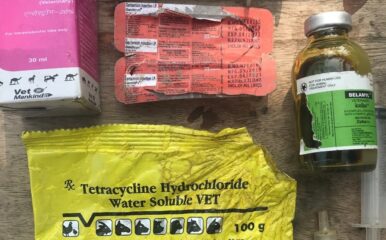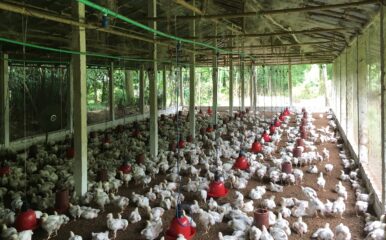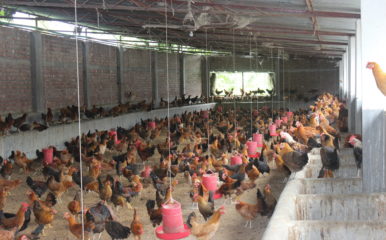
One Health Roadmap Series: reflections and next steps
Published on 08/11/2021
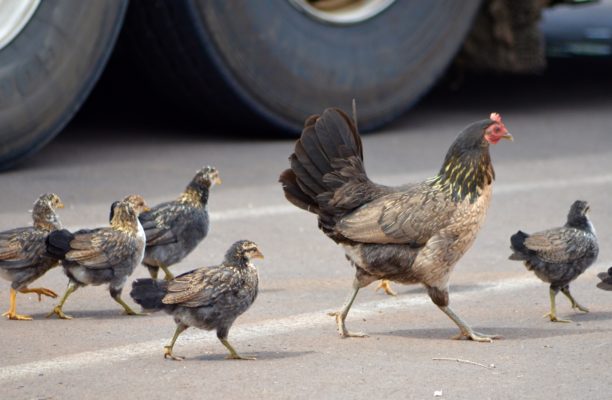
Karen via Flickr
The One Health Poultry Hub has an ambitious agenda: not only does it aspire to generate cutting-edge, interdisciplinary research, but (among other things) it aims to promote discussion on what ’sustainable intensification’ of poultry production actually means. This is not as simple as it sounds.
Using the word ‘sustainable’ implies a firm focus on the future. And, of course, ‘intensification’ has implications for all aspects related to production, nutrition, environmental impacts and health (both of poultry and people). Combine these two, and you have a very wide range of topics to consider – many of which transcend poultry production.
The Roadmap Series was conceived as a forum to enable broad debate on all of these areas. It was also intended to raise visibility of the Hub’s work and perform advocacy on these cross-cutting issues.
The Roadmap itself was constructed to take in different aspects and perspectives. Five themes were covered – Food Systems, Disease Governance, Disease & Pandemics, Poultry Production & Distribution Systems, and Food System Governance – incorporating 17 discrete subjects, with the first two of these themes covering the larger ‘systems’ aspects of global poultry production and topics associated with biosecurity and disease. The series concluded with several discussions on governance.
Download the Roadmap Schema
The experts who presented on each topic provided up to three key messages. By the end of the discussion series in August 2021, the number of such insights added up to 105.
To make sense of this very comprehensive but highly varied information, these messages were inspected and found to cluster well into nine themes, of which ‘One Health governance and implementation is the future‘ was considered of underpinning relevance.
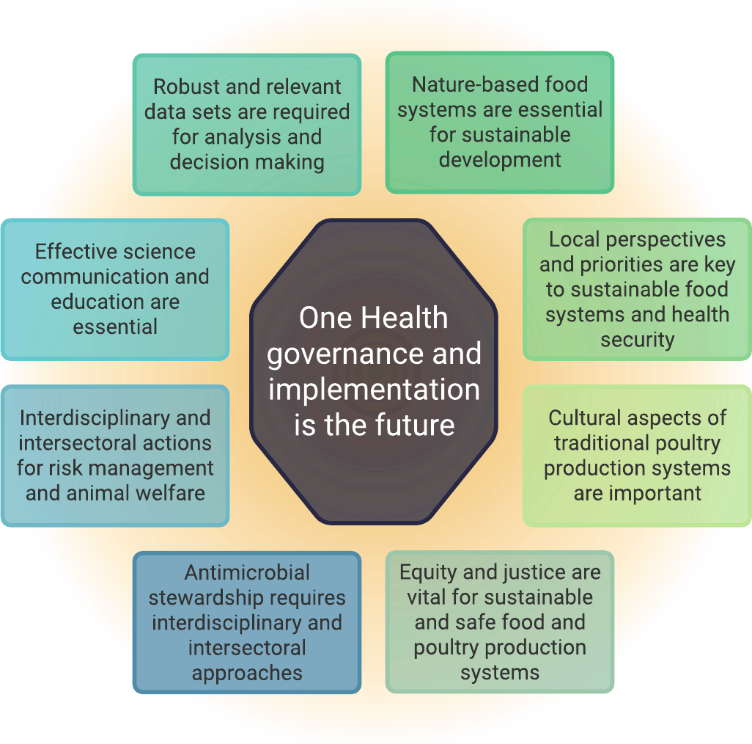
To allow for the diversity of conditions and priorities across the four countries in Asia in which the Hub works to be fully discussed, after the final event we organised focus group workshops in each country, involving people who had participated in the Roadmap discussions and invited external stakeholders. Our primary interest was to assess whether the themes we had identified resonated and were consistent with national-level priorities. We were also interested in any potential scope to continue the discussions within each country.
Overall, our nine themes were found to be applicable and of relevance across Bangladesh, India, Sri Lanka and Vietnam, though as would be expected there was some variability. One observation was that the formulation of these themes is global and holistic; they do not specifically mention priority topics identified within the country workshops.
For example, in the Sri Lanka workshop, it was observed that while the environmental impacts of poor poultry waste management could fall under ‘Interdisciplinary and intersectoral actions for risk management’ as well as ‘Nature-based food systems are essential for sustainable development’, there was no more intuitive theme which incorporated this.
Not all themes were considered of equal relevance. The central ‘One Health governance and implementation is the future’ was unanimously endorsed. ‘Interdisciplinary and intersectoral actions’, ‘Antimicrobial stewardship’ and ‘Robust and relevant data sets’ were widely considered to be high relevant.
On the other hand, in the India workshop, while the importance of ‘Equity and justice’ and ‘Local perspectives and priorities’ were not doubted, these were considered of secondary importance when applied to poultry production.
It was also interesting to map our themes to the country-level Hub Theories of Change (ToCs). These are not directly comparable to the Roadmap Series themes, as they were designed to be more applied and operational (that is, identifying pathways to impact). However, the ToCs and Roadmap Series themes share a focus on future-facing solutions and long-term outcomes, and it is at this level that parallels can be sought.
It was apparent that the ToCs tended to have a more technical focus on science, production and policy, and comparatively less on the societal, cultural and environmental issues represented in the Roadmap Series themes.
There was support for national-level extensions of the Roadmap Series. Suggestions were made for specific subjects to be covered, as well as ideas exchanged ideas on how, and by whom, this should be done.
Advocacy plan
At the overarching Hub level, the principal recommendation is to leverage the outputs of the Roadmap Series discussions to further develop a coherent vision – and accompanying advocacy plan – that explicitly incorporates national and local needs and priorities for the future. Also to structure an eventual second series around that.
A universal agreement across workshops was that such follow-up initiatives should be co-organised with other key stakeholders and we will continue to expand our sphere of active engagement outside the Hub network.
In conclusion then: have we reached the end of this road? Given the intricate and interlocking nature of many of the issues the Hub is attempting to address, this was never a likely outcome.
And this first journey along it has been of huge value in terms of providing a platform to generate discussion, to develop insights, to enable complex problems to be contextualised and formulated in an accessible manner, and to pull things together into a more coherent framework.
To quote the Indian author Kiran Desai, “A journey, once begun, has no end.”

